The aim of Pronti Partenza Via is to promote the most beautiful places in Italy from a tourist point of view, but it does not want to limit itself to tracing portraits of only the art cities that make our country loved and envied abroad; the desire is also to introduce some small villages that together with the capitals best represent Italian culture. This explains why I decided to include Varzi among the destinations of this program of mine, dedicating an episode to the village of Oltrepò Pavese.
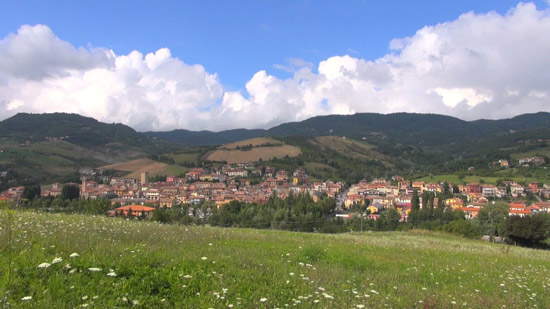 |
| View of Varzi |
With Varzi, I would like to begin a small digression that will take us to the discovery of some realities that are perhaps not known for their art (and so perhaps I will go beyond the usual articles of Finestre sullArte) but that represent Italy for its other great asset: lenogastronomy. We will also continue in the coming months to tell you about traditions, flavors, folklore, typical products and stories not known to everyone, in our journey to discover the beauties of Italy.
Why Varzi in particular? The main reason was the medieval festival held in early August: inaugural event last year and growing success again this year. On both occasions we were there.
If this is the main reason that prompted me to cross the Po to reach this strip of Lombardy wedged between Piedmont and Emilia, it is not, however, the only one: in fact, I had already wanted to visit this village for a long time, since my university days, when my faculty colleague (and now professionally) Franco described his town to me with such admiration. So it was quickly my decision to conduct an episode of my column Pronti Partenza Via in Varzi as soon as I learned of the events that the local associations were preparing in perfect medieval theme. So I decided to produce an episode a little different from the usual, set (and thus conducted) in the 15th century, stepping (physically) into medieval shoes.
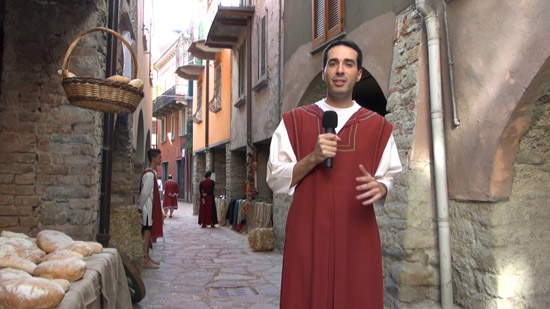 |
| Our Fabrizio in... medieval garb! |
Filming the episode was, as usual for me, a pleasure; in this case there was a great cooperation from all the boys who participated in the staging of the medieval festival and who also lent themselves to act as figurants during the filming in medieval times.
The uniqueness of the village, which arose along the so-called Salt Road, i.e., the road that spice smugglers traveled from Liguria to northern Italy, lies in its conformation: structured in overlapping levels. The road placed on the upper level rests on the arcades and cellars placed on the lower level and so on for 5 levels. This was in order to make the best use of the lorography of the land and to provide shelter for the merchants in transit, who could lodge on the upper level, while they could shelter wagons, goods and horses on the lower one.
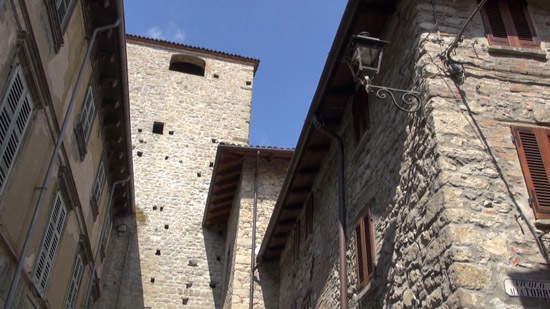 |
| Buildings of Varzi with, in the background, the Tower of Porta Sottana |
Varzi is also, and above all, renowned for its salami, a coarse-grained PDO gastronomic product that complements other cured meats produced in the Staffora Valley, as well as cheeses. The area also offers truffles and mushrooms. A good lunch then is completed with the wine offerings of the Oltrepo Pavese, which we will discuss extensively in our next appointment, in which we will describe wines, grapes, and grape varieties in Lombardy.
Linvito is therefore to travel, to discover how many places, how many art cities, how many villages like Varzi there are in Italy that deserve to be discovered or re-discovered even through a fleeting and short Sunday trip. We will thus be able to accompany larte, which we can find everywhere, even in the small churches or palaces of these villages, with excellent products that the land offers us. We will savor larte, also tasting the delicacies of the land.
Trivia of the episode: In 1460 a number of women accused of witchcraft were imprisoned in the tower of the Malaspina castle, which is how it got the nickname Torre delle Streghe (Witches’ Tower).
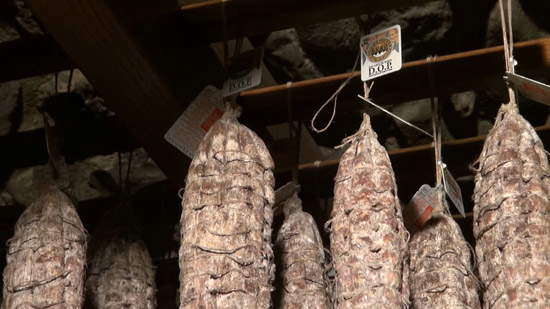 |
| The PDO Salami of Varzi |
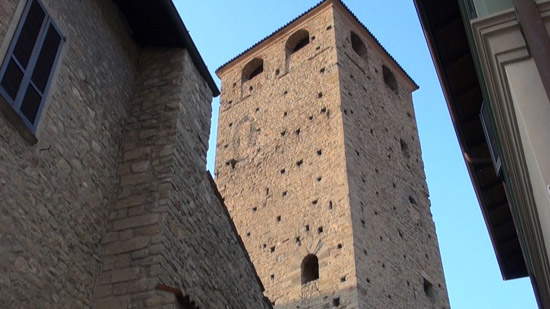 |
| The Witches’ Tower |
Warning: the translation into English of the original Italian article was created using automatic tools. We undertake to review all articles, but we do not guarantee the total absence of inaccuracies in the translation due to the program. You can find the original by clicking on the ITA button. If you find any mistake,please contact us.